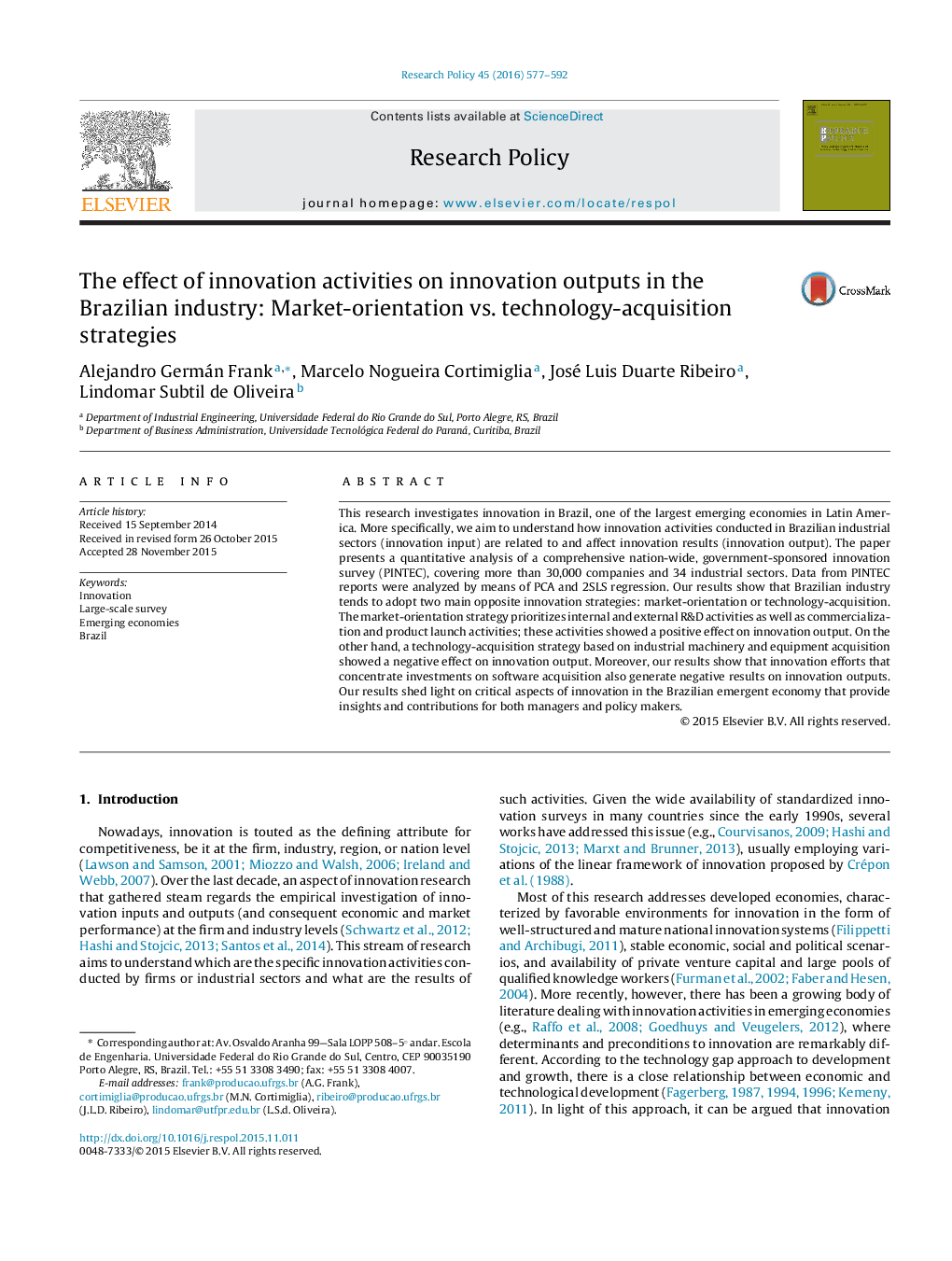| Article ID | Journal | Published Year | Pages | File Type |
|---|---|---|---|---|
| 10482503 | Research Policy | 2016 | 16 Pages |
Abstract
This research investigates innovation in Brazil, one of the largest emerging economies in Latin America. More specifically, we aim to understand how innovation activities conducted in Brazilian industrial sectors (innovation input) are related to and affect innovation results (innovation output). The paper presents a quantitative analysis of a comprehensive nation-wide, government-sponsored innovation survey (PINTEC), covering more than 30,000 companies and 34 industrial sectors. Data from PINTEC reports were analyzed by means of PCA and 2SLS regression. Our results show that Brazilian industry tends to adopt two main opposite innovation strategies: market-orientation or technology-acquisition. The market-orientation strategy prioritizes internal and external R&D activities as well as commercialization and product launch activities; these activities showed a positive effect on innovation output. On the other hand, a technology-acquisition strategy based on industrial machinery and equipment acquisition showed a negative effect on innovation output. Moreover, our results show that innovation efforts that concentrate investments on software acquisition also generate negative results on innovation outputs. Our results shed light on critical aspects of innovation in the Brazilian emergent economy that provide insights and contributions for both managers and policy makers.
Related Topics
Social Sciences and Humanities
Business, Management and Accounting
Business and International Management
Authors
Alejandro Germán Frank, Marcelo Nogueira Cortimiglia, José Luis Duarte Ribeiro, Lindomar Subtil de Oliveira,
